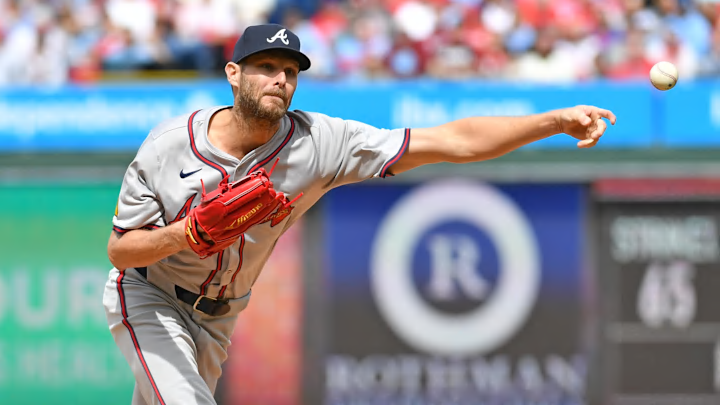Braves Are Vindicated in Their Offseason Moves

In this story:
The Atlanta Braves could have just “ran it back”, or “rested on their laurels”, or whatever else you want to call just trying again with the same personnel.
After all, the Atlanta Braves weathered the loss of two thirty-game starters from 2022 in Max Fried (hamstring, forearm) and Kyle Wright (shoulder) to put up a 2nd-consecutive 100+ win season, taking home their 6th straight NL East trophy on the back of a dominant frontline starter in Spencer Strider and an overpowering offense that came one homer away from setting a new single-season record.
It would have been easy to just do the same thing again this year and hope for a different postseason result - Philly’s doing just that, by re-signing starter Aaron Nola and making only minimal outside adds in utilityman Whit Merrifield and some back-of-the-rotation starter depth in Kolby Allard and Spencer Turnbull.
But Alex Anthopoulos, Braves president of baseball operations and general manager, wasn’t content to rest on his laurels, going out and signing free agent Reynaldo López to be a starter and then pulling off a surprising trade for Boston Red Sox starter Chris Sale.
And with the news of the elbow “discomfort” plaguing starter Spencer Strider, not resting on laurels and past performance and the hope that “running it back” would work has turned out to be the right call.
Because - and with the giant caveat of ‘we won’t truly know anything until the Braves release the result of the MRI this afternoon’ - IF Spencer Strider needs to miss significant time, either isolated to this season or beyond, you’re going to be happy that Anthopoulos made additions to the rotation.
Adding Sale and López, combined with another offseason of development from young prospect AJ Smith-Shawver, the experience that last year’s top pick Hurston Waldrep will get this season, and the back-end rotation depth you were forced to develop last season means that Atlanta has options.
This came up last season - with Max Fried coming off his third injured list stint just in time for the NLDS and Charlie Morton unavailable, what you didn’t have was options. The Braves were essentially stuck with three choices, none of them ideal - a gassed Bryce Elder, who had already blown past any sort of career high in innings and was showing the effects of that in his numbers down the stretch, twenty-year-old AJ Smith-Shawver, who started the season in High-A and was pushed to the majors by June, or a bullpen game for a pen that was missing some key contributors (Dylan Lee, Tyler Matzek, Jesse Chavez) and had only one lefty in AJ Minter.
The Braves combined those options - Elder started and Smith-Shawver entered in the middle innings, but the duo combined for nine earned runs in just 5.1 innings of a 10-2 Philly blowout of Atlanta.
Now, imagine that scenario this season - needing to replace a postseason starter, you have a prospect that improved exponentially over the offseason (Smith-Shawver), a young starter better adjusted and prepared to handle a full season workload (Elder), two veteran additions (Sale and López), a 2023 top draftee who had a full season to adjust to professional baseball (Waldrep), or a bullpen game for an ‘armbarn’ that has, as of now, four lefty relievers and is one of the deepest Atlanta bullpens in recent history.
I’m not a mathematician, but having six options is better than three, right?
There’s a long way to go, obviously - half of those guys might not be available in the postseason, or Strider might be back and the whole issue is moot.
But here’s the thing: You can never have enough pitchers. Alex Anthopoulos understood that, and acted accordingly this offseason.
And the World Series chances for the Braves might have hung in the balance.

Managing Editor for Braves Today and the 2023 IBWAA Prospects/Minors Writer of the Year. You can reach him at contact@bravestoday.com
Follow @crosbybaseball